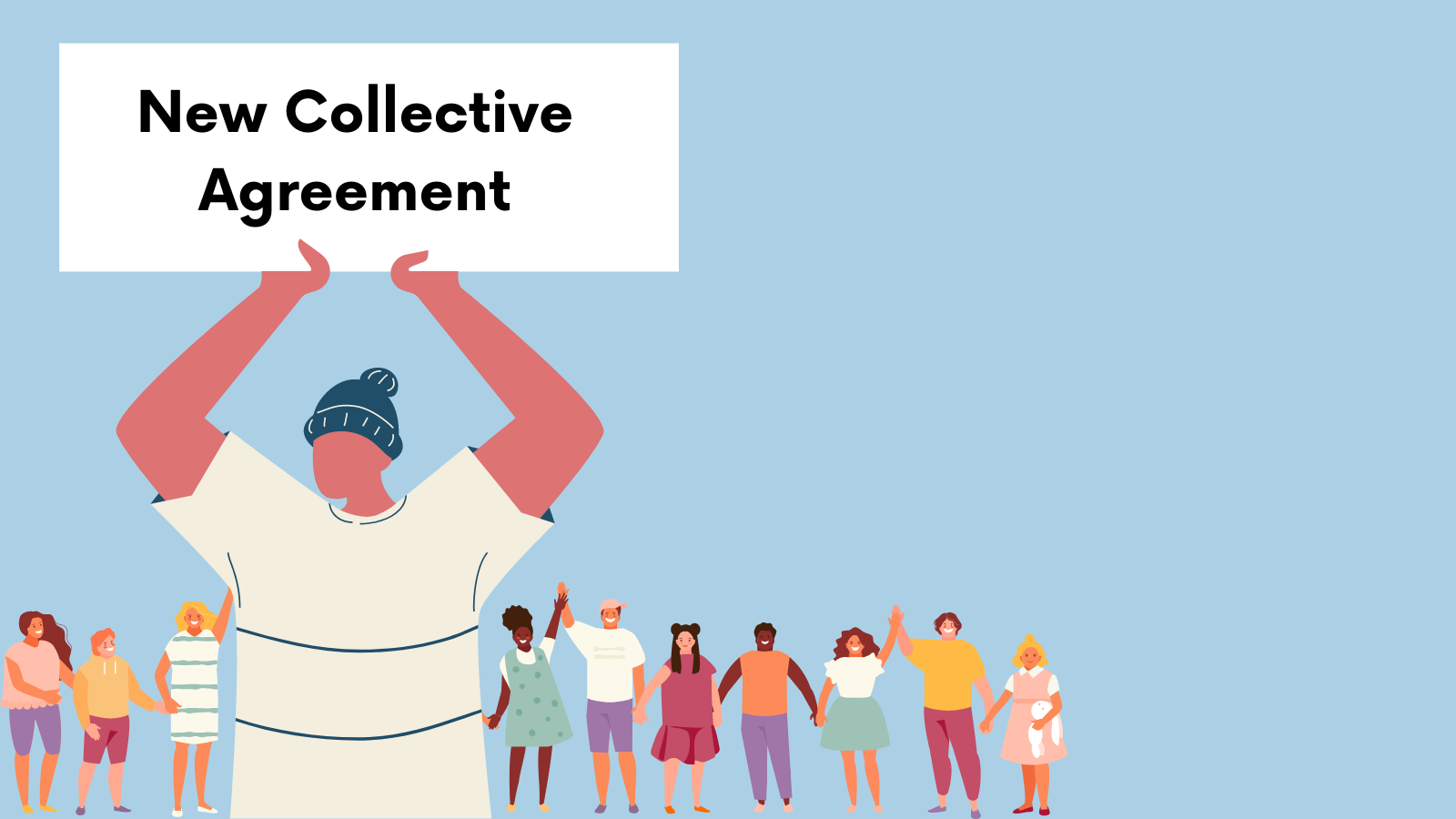
SFSS x CUPE Ratify Historic New Collective Agreement, Symbolizing Moving Forward Together
April 29, 2022
The relationship between the Simon Fraser Student Society and the Canadian Union of Public Employees (the Union) has been nothing short of a rollercoaster. In 2011, during collective bargaining, the former SFSS Leadership and Management chose to abruptly end negotiations by locking out Society staff (union members) for over six months. The lockout ended with the Union accepting many cuts to working conditions including but certainly not limited to two-tier wages between Coordinators, among many more.
Job turnover was at an all-time high, with staff resigning and/or being terminated due to the unjust power imbalance between management and staff. Many staff resigned due to bullying and harassment, and the Society’s relationship with the Union was virtually non-existent. As you can imagine, a workplace that is so severely fractured (and intentionally) by management is a workplace with low morale and an even more toxic atmosphere.
After nearly a decade later, and a major governance overhaul restructuring in 2020, President Osob Mohamed picked up the fractured pieces left behind by her predecessors and (in the midst of the COVID-19 pandemic), led the Society in a new direction. Osob, a Black and visible Muslim (and to our knowledge, the only Black Muslimah President of the SFSS), led the Society with fairness and empathy. This included more involvement for Student Leadership, and bridging the gap between Executive Officers as part of the then called “Board of Directors” (now Council) and Society staff.
The restructuring included an organizational overhaul of the entirety of Student Leadership to reflect accountability and transparency to students, and also included consolidating a plethora of union-excluded management positions from 7 to 3. Monies recovered from consolidating union-excluded positions contributed to providing Student Councillors a living wage for their labour and leadership. “We came into the bargaining process with two major goals in mind: to rectify harm caused by previous SFSS management by incorporating better workplace conditions for our staff, and to rebuild our relationship” shared Osob Mohamed, former SFSS President.
Ayesha Khan, the Operations Organizer of the Society led the SFSS bargaining committee at the collective bargaining table, which was steered by Osob Mohamed (former SFSS President), Gabe Liosis (current SFSS President), Matthew Provost (current SFSS VP External Relations) and Corbett Gildersleve (current SFSS VP Internal & Organizational Development). Together, the SFSS bargaining committee worked to draft equitable proposals that would see tangible and long-lasting improvements to working conditions for staff (many who are student employees).
Former SFSS President Gabe Liosis shares that, “our staff are essential in being able to support the Society’s activism, services, and supports for our members. Without staff, we would not be able to exist in the way that we do. Many previous Boards did not take their role as an employer seriously. I am thrilled that during this round of bargaining, we were able to correct many of the harms created in the past, and pave the way for an equitable future for our employees.”
Their proposals sought to solve glaring gaps in the agreement that gave way for mismanagement and misinterpretation. With a committee composed of majority equity-seeking members (BIPOC, Disabled & Neurodiverse and 2SLGBTQIA+), they reimagined a new way forward that included repairing the severed relationship between the Society and the Union. Matthew Provost says he “wanted to ensure that we established and built a trusting relationship from a perspective of equity, support, and addressing core changes that ultimately would contribute to supporting our staff since they are integral to all of the work, we do within the SFSS.”
The goal of the bargaining committee was to address inequities in the agreement including but limited to:
Among more improvements. All of these (successfully negotiated) historical improvements listed above by the committee, encourage long-term job retention that will directly improve the Society as a whole.
After nearly a year of negotiations with the Union, consensus was reached that fulfilled the mandates of both sides of the table. At the Union ratification meeting, the membership voted 100% in favour of the negotiated agreement. The next day, at a bustling and full SFSS Council meeting, Councillors also voted unanimously in favour of the negotiated agreement. “As a student society, the SFSS’s main functions include creating equitable spaces for our members to thrive. Our staff play a key role in helping us to make this happen. I am thrilled to hear an agreement has been reached, and look forward to watching the SFSS continue to grow” Mohamed shared. The historic support for the new agreement shows the communal strength to steer the Society forward together, equitably and collaboratively.
In Solidarity,
Osob Mohamed (President 2020-2021)
Gabe Liosis (President 2021-2022)
Matthew Provost (VP External Relations 2021-2022)
Corbett Gildersleve (VP Internal & Organizational Development 2021-2022)